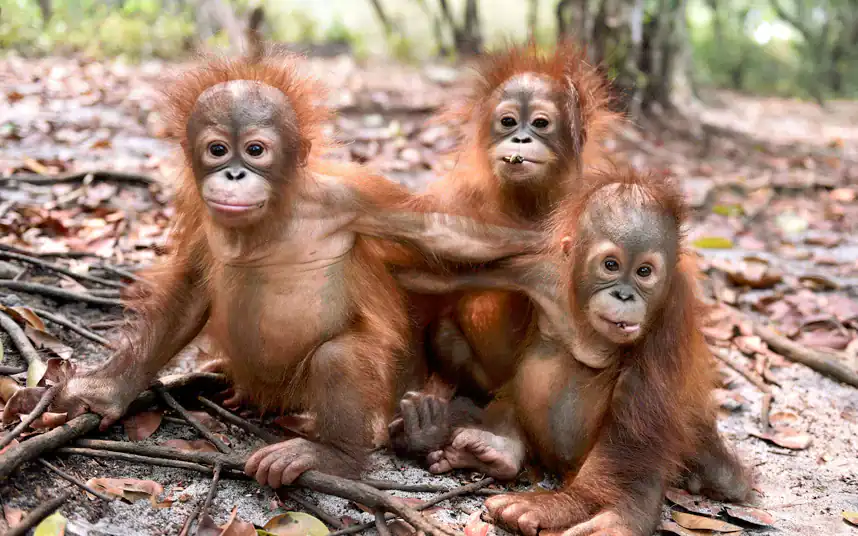WASHINGTON: The population of orangutans in Borneo has plummeted by more than half since 1999 — nearly 150,000 of the apes — largely due to chopping down forests for logging, paper, palm oil and mining, researchers said Thursday.
Illegal hunting of the critically endangered apes is also a leading factor in their disappearance, said the study published in the journal Current Biology.
“Our findings are alarming,” said the report, which estimated that 148,500 orangutans vanished on the southeast Asian island between 1999 and 2015.
“Natural resources are being exploited at unsustainably high rates across tropical ecosystems, including Borneo.”
The deaths represent a 53% decline in the population, lead author Maria Voigt of the Max Planck Institute for Evolutionary Anthropology in Germany told AFP.
“We estimate there are between 70,000 and 100,000 left,” she said.
Bornean orangutans (Pongo pygmaeus), along with their cousins, the Sumatran and Tapanuli orangutans, are all considered critically endangered species.
For the study, Voigt and colleagues compiled field studies from 1999-2015.
They estimated the overall size of the island’s population from the number of orangutan tree nests observed in Borneo — a total of 36,555 nests.
By analysing separate populations of orangutans, they found that only about half (38 of 64) of these groups contained more than 100 individuals, enough to maintain a viable population.
Maps of land-cover change over time suggest that the most dramatic cause of the decline is land clearance.
However, a much larger number of orangutans were lost in forests that were only selectively logged.
“The decline in population density was most severe in areas that were deforested or transformed for industrial agriculture, as orangutans struggle to live outside forest areas,” said Voigt.
“Worryingly, however, the largest number of orangutans were lost from areas that remained forested during the study period. This implies a large role of killing.”
At the current pace, researchers predict that 45,000 more of the of the slow-breeding ginger-haired apes will be lost over the next 35 years.
AFP

